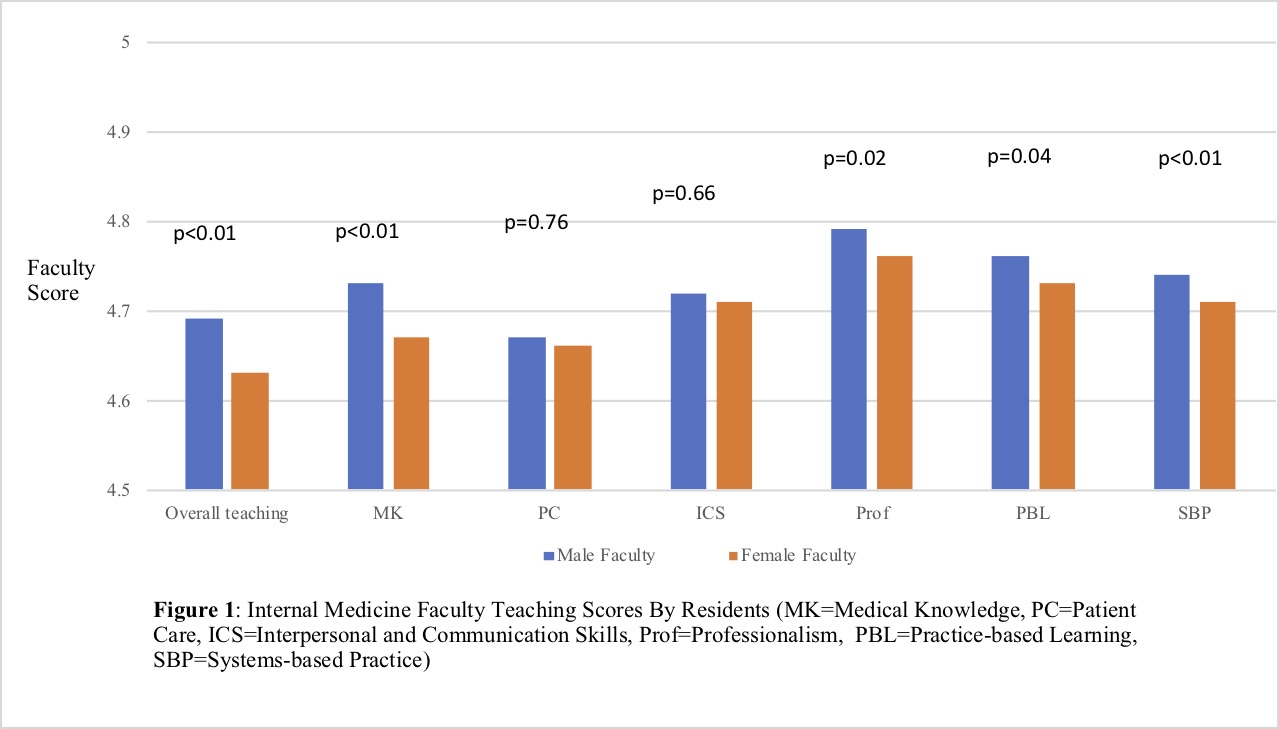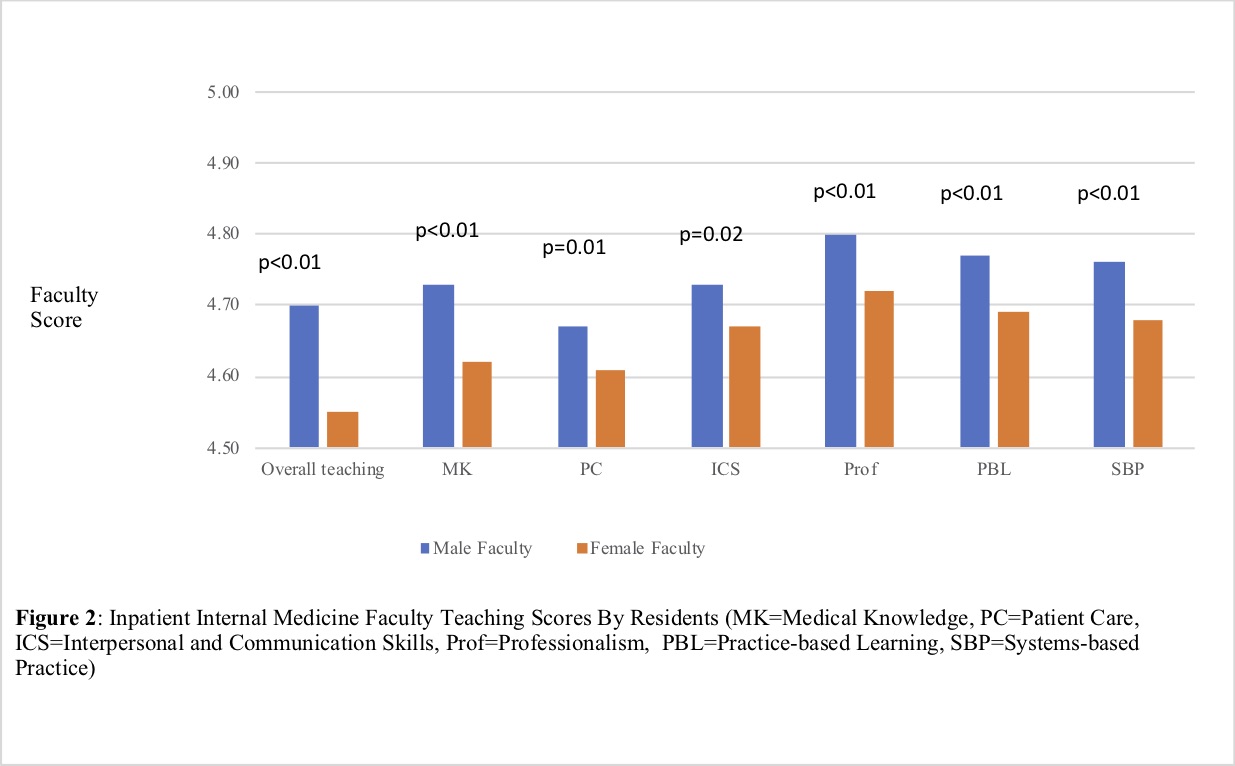Background: Gender disparities in academic medicine are well-documented. In many current academic settings, decisions regarding faculty promotion, teaching time, and pay are influenced by performance evaluations. As a result, it is crucial to understand how evaluations may be impacted by gender bias. There are three aims to this study: 1) assess for differences in the evaluation of general internal medicine (GIM) faculty by internal medicine residents based on faculty gender; 2) examine the effect of faculty gender on evaluation of the six Accreditation Council for Graduate Medical Education (ACGME) competencies: medical knowledge (MK), patient care (PC), interpersonal and communication skills (ICS), professionalism (Prof), practice-based learning and improvement (PBL) and systems-based practice (SBP); 3) investigate if the impact of gender on evaluation of faculty performance is different in the inpatient vs outpatient setting.
Methods: Resident evaluations of faculty performance and teaching quality at a large academic medical center from the inpatient GIM services and the outpatient GIM clinics between July 2015 and June 2018 were compiled. Evaluations use descriptions of positive faculty attributes based on the ACGME competencies and ask residents to use a 5-point Likert scale (1=strongly disagree to 5=strongly agree) to assess faculty performance. Evaluations were coded based on gender of the resident and faculty and de-identified prior to analysis. Gender differences were assessed within domains using a multilevel model; resident identities were random factors and faculty gender was a random fixed factor. For competency specific domains, we used t-tests of mixed model analyses to evaluate differences for significance. Initial analysis included the entire sample of GIM faculty; secondary analysis was limited to only evaluations from the inpatient setting.All statistical analyses were conducted using R (version 3.4.4 2018-03-15) with base packages (stats, graphics, grDevices, utils, datasets, methods, base) and “lmerTest” software package.
Results: Evaluations (N=3581) were completed by 445 residents of 161 attending physicians (80 women, 49.7%). Using evaluations from both inpatient and outpatient clinical settings, male faculty were rated as having higher overall teaching ability compared to their female colleagues (4.69 vs 4.63, p <0.01) and received higher scores than female faculty in 4 ACGME domains: MK, Prof , PBLI, and SBP (Fig 1). When limited to the inpatient setting (N=1843, 537 female faculty, 29.1%), male faculty received significantly higher scores overall (4.70 vs 4.55, p<0.01) as well as across each of the 6 ACGME domains (Fig 2).
Conclusions: This study adds to literature that women receive lower scores on teaching evaluations than male counterparts. Using the ACGME framework, men score higher in the classically agentic competencies (MK, Prof, SBP and PBL) where knowledge and leadership are emphasized in both inpatient and outpatient settings. In combined clinical settings, no difference is seen in PC or ICS scores, areas that align with communal attributes associated with women. However, when limited to the inpatient setting, male faculty are rated higher across all domains. Further work must be done to understand these differences and the potential role of gender bias in order to provide information for hospital medicine leadership when reviewing faculty evaluations and making decisions about their use in promotion, teaching time allocation, and compensation.


